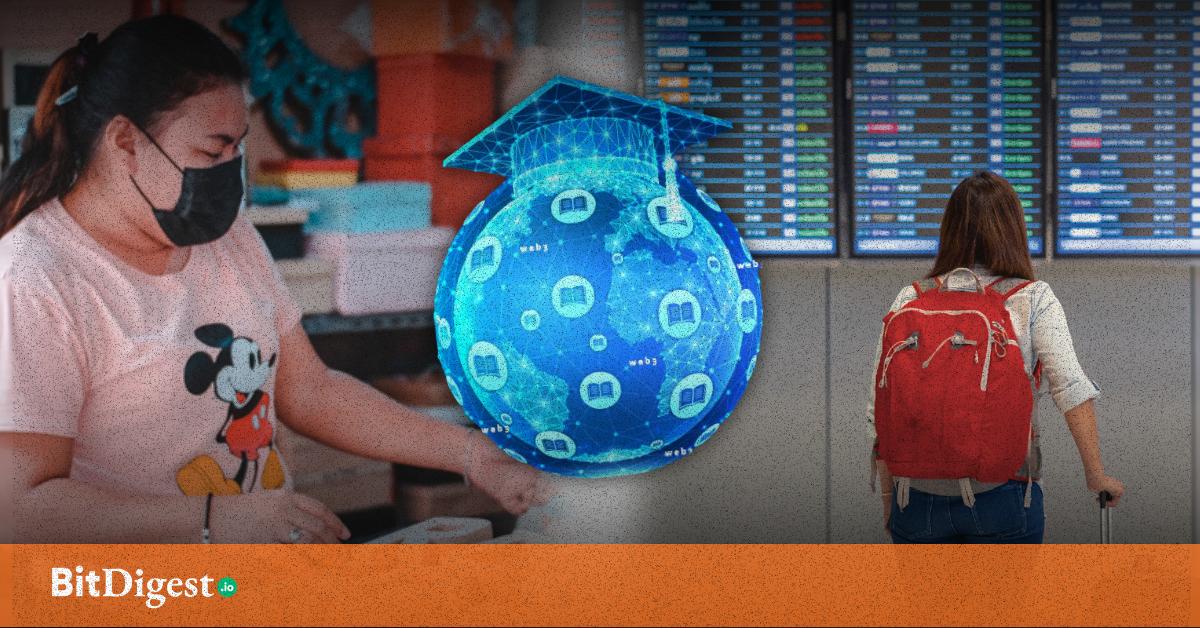From Capital to Community: Why Web3 Financial Education Should Start with OFWs and MSMEs
In the Philippines’ journey toward becoming a digital economy powerhouse, much attention has been placed on innovation, investment, and infrastructure. But if Web3 adoption is to truly scale—and do so sustainably—it must start with the people who need it most. For the Philippines, that means Overseas Filipino Workers (OFWs) and Micro, Small, and Medium Enterprises (MSMEs).
These groups are not just economic contributors; they’re economic lifelines. OFWs send home over $36 billion annually, fueling household consumption, tuition, and housing. MSMEs account for 99.5% of all businesses and generate over 60% of jobs. Yet both face disproportionate challenges in accessing modern financial tools, platforms, and protections.
This is where Web3 comes in not as a replacement for traditional finance, but as a set of new rails for inclusion.
OFWs: High Fees, Low Access, and the Web3 Alternative
The average OFW remits money through intermediaries that can charge fees ranging from 5% to 10%. Delays, hidden charges, and currency exchange losses further erode the value of every dollar sent home.
With stablecoins and blockchain-based rails, remittances can be settled in near real-time at a fraction of the cost. Tools like non-custodial wallets and QR-based crypto payments enable OFWs to bypass slow, fee-heavy middlemen, while giving their families access to funds instantly.
The proposed House Bill No. 4792 ("Philippine Tokenization and Crypto Adoption Act of 2025") even outlines pilot programs for stablecoin payments in public services. For OFWs, this hints at a future where crypto remittances aren’t just possible, they could soon be used for paying government fees, utility bills, or even tuition directly.
But that future only works if the tools are understood. Without education, innovation becomes exclusion.
MSMEs: The Missing Middle of Financial Access
MSMEs often fall through the cracks of traditional finance. They’re too small for large capital markets, but too complex for microfinance. Tokenization can change that.
Under House Bill No. 4792, MSMEs would be eligible to tokenize assets such as intellectual property, real estate, and future revenue streams. This would allow them to raise funds from the broader market including OFWs, diaspora investors, and everyday retail participants.
Decentralized exchanges (DEXs) and licensed centralized exchanges (CEXs) could host these tokenized offerings, provided investor protection standards are in place. The bill even mandates the creation of a Citizen Education Fund to promote financial literacy around digital assets.
Closing the Loop Between Capital and Community
Web3 inclusion isn’t about pushing more tokens. It’s about giving people access to tools that protect their money, grow their businesses, and connect them to global networks.
But those tools come with risks. Without a baseline understanding of how wallets, smart contracts, and stablecoins work, users are vulnerable to scams, volatility, and misinformation. That’s why the bill mandates education not as an afterthought, but as a pillar: 10% of annual fees collected from digital asset regulation will go toward nationwide digital finance literacy.
This includes OFW-specific education programs, integration into school curriculums through CHED and DepEd, and multilingual campaigns led by agencies like the DTI and SEC.
The success of Web3 in the Philippines will not be defined by the number of startups launched or the size of foreign investments attracted. It will be defined by how many lives it improves, especially those of the Filipinos who stand to gain the most. By starting with OFWs and MSMEs, and embedding education into the system itself, the Philippines can ensure its Web3 transformation is both inclusive and irreversible.
.svg)


.svg) SHARE TO FACEBOOK
SHARE TO FACEBOOK SHARE TO TWITTER/X
SHARE TO TWITTER/X SHARE TO LINKEDIN
SHARE TO LINKEDIN SEND TO MAIL
SEND TO MAIL


.svg)


.svg)